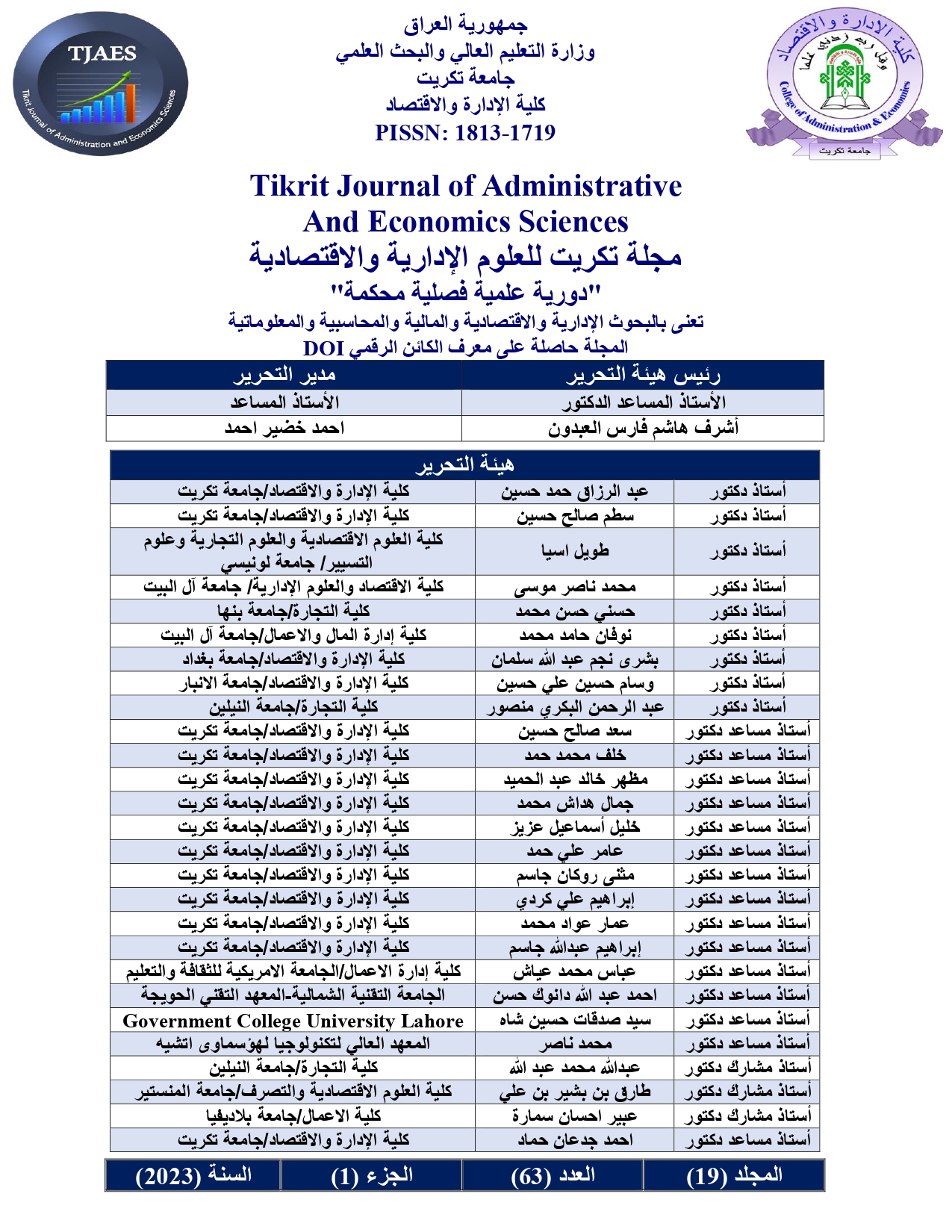Abstract
The aim of this research is to study the impact of technological advancement in artificial intelligence on accounting practices in Iraq. The research hypotheses were tested by distributing questionnaires to a group of accounting academics in Iraqi universities during the year 2023, resulting in 200 valid responses. Several results were obtained, including the significant correlation between determinants, dimensions 3, and applications of artificial intelligence systems, and the role of artificial intelligence applications in supporting the accounting profession. The Pearson coefficient was found to be (0.162*), with a significance level of less than 0.05. There is also a statistically significant effect between the reflections of artificial intelligence applications on accounting functions and the reality of artificial intelligence in accounting applications in Iraq, with a significance level of less than 0.05. The research emphasizes the importance of artificial intelligence in enhancing accounting processes through techniques that improve efficiency, accuracy, cost reduction, and facilitate informed decision-making. The research also provides a range of recommendations, including the necessity for accountants to reassess their scientific and practical capabilities in the coming years, as those who are not familiar with contemporary technological advancements may be at risk of job loss. To prevent this, organizations and professional institutions should provide accountants with training and educational courses to enhance their skills.
Keywords
Accounting profession
Artificial intelligence
Information technology
Abstract
يهدف البحث إلى دراسة آثار التقدم التكنولوجي في الذكاء الاصطناعي على الممارسات المحاسبية في العراق. وقد تم اختبار فرضيات البحث من خلال توزيع استبيان على مجموعة من أكاديميي المحاسبة في الجامعات العراقية خلال عام 2023، مما أدى إلى 200 إجابة صحيحة. تم الحصول على العديد من النتائج أهمها: هناك علاقة ارتباطية ذات دلالة معنوية بين محددات وأبعاد وتطبيقات نظم الذكاء الاصطناعي ودور تطبيقات الذكاء الاصطناعي في دعم مهنة المحاسبة اذ بلغ معامل بيرسون (0.162*) بمستوى دلالة أقل من 0.05 ويوجد أثر ذو دلالة إحصائية معنوية بين انعكاسات تطبيقات الذكاء الاصطناعي على وظائف المحاسبة وواقع الذكاء الاصطناعي في التطبيقات المحاسبية في العراق بمستوى دلالة أقل من 0.05. أشار البحث إلى أهمية الذكاء الاصطناعي في تعزيز العمليات المحاسبية بتقنيات تعمل على تحسين الكفاءة والدقة وخفض التكاليف وتسهيل اتخاذ القرارات المستنيرة. كما قدم البحث مجموعة من التوصيات أبرزها: ضرورة قيام المحاسبين بإعادة تقييم قدراتهم العلمية والعملية في السنوات القادمة، إذ إن أولئك الذين يفتقرون إلى الإلمام بالتطورات التكنولوجية المعاصرة سيتعرضون لخطر فقدان الوظائف. ولمنع ذلك، ينبغي للمنظمات والمؤسسات المهنية تزويد المحاسبين بدورات تدريبية وعلمية لتعزيز مهاراتهم.
Keywords
الذكاء الاصطناعي، مهنة المحاسبة، تكنولوجيا المعلومات.
